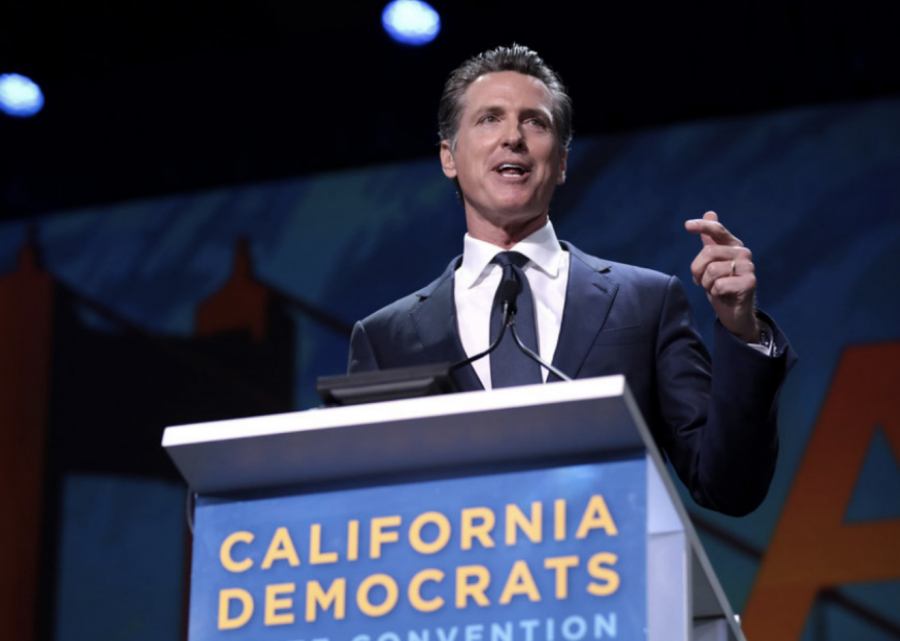The Gavin Newsom recall election is likely, but is it needed?
THE CALL FOR REPLACEMENT: California Democratic Gov. Gavin Newsom faces a potential recall election after receiving backlash for his response to the COVID-19 pandemic.
March 22, 2021
With significantly dropped approval rates mostly due to his inadequate COVID-19 response, California Democratic Gov. Gavin Newsom faces the possibility of recall before the end of his term. Although this frustration towards Newsom is understandable, a recall election reflects partisan interests, not those of all Californians; it will be needlessly costly and ultimately hamstring California’s pandemic recovery.
Newsom’s approval ratings were over 60% last year, but recent polls indicate a drop to 46% due to immense disapproval towards his handling of the pandemic.
The start of his decline in popularity can be attributed to when Newsom dined with over 12 people from different households in an indoors restaurant patio without masks during November of last year, hypocritically flouting his own COVID-19 safety protocols. Additionally, Newsom’s delaying of school reopenings have frustrated parents and students who find online learning to be ineffective. Finally, the governor has also scrambled to deliver a competent vaccine roll out, resulting in instances where doses to teachers and those at high risk with underlying health conditions were delayed.
While Newsom should absolutely be held accountable for his missteps and failures during the pandemic, hosting a recall election would be too costly to be worthwhile. Recalls are expensive; the 2003 California recall of Gov. Gray Davis cost around 25 million and estimates for this potential recall are about 100 million. Wasting money on this effort will only further the economic slump as California struggles to stimulate the floundering economy in the wake of the pandemic.
Furthermore, the recall campaign is dominated by extreme rightists who have been unsuccessfully trying to recall Newsom since his inauguration in 2019. While the pandemic response has given some unsatisfied Democrats reason to join the recall effort, major donors are far-rightists, either wealthy businessmen or politicians. Unsurprisingly, the California Republican Party and the Republican National Committee funded a total of $375,000 to financially aid the recall.
“The facade is gone. It’s never been more clear — they’re admitting that the Republican recall scheme is simple partisan politics,” said Dan Newman, Newsom’s campaign manager. “Republicans have lost every single state election for 15 years, so they’re trying increasingly desperate, distracting and destructive things.”
A politically motivated recall will likely result in a chaotic special election, filled with unqualified candidates. Following the 2003 recall, a total of 135 candidates entered the election, many of whom weren’t previously involved in the political field and sought either personal or political gain. The winner of the recall, former Republican Gov. Arnold Schwarzenegger, won with just 48.6% of the votes.
Newsom is up for re-election in 2022. Rather than spend millions on a recall, voters who have been unimpressed or disappointed with his leadership can vote for someone new then.
Replacing Newsom during a national crisis and a polarized election environment is just asking for more turmoil and chaos when we should be focused on recovery. Besides, what’s the guarantee that a replacement would do a better job?

























































